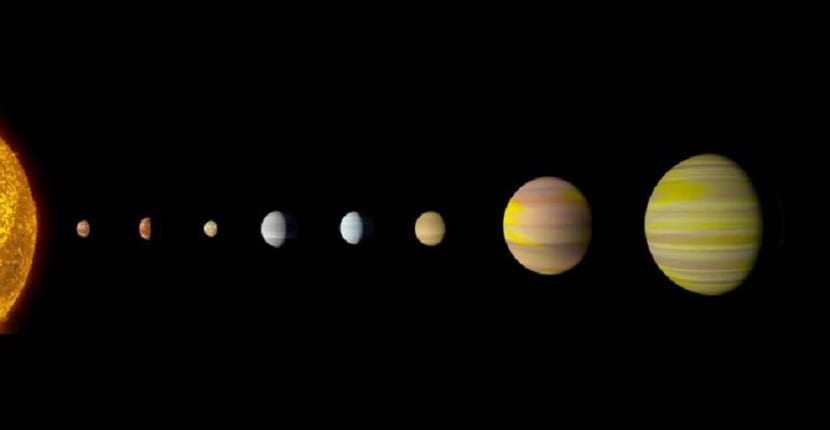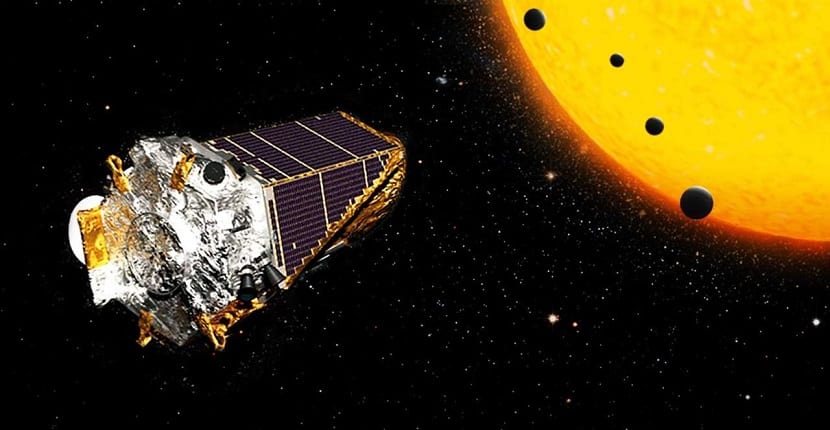
Just a few days ago it was her own NASA the one that launched a press release announcing that they had a great news to tell. After several days of waiting, the United States Space Agency finally published a new statement where they revealed that they had discovered a eighth planet orbiting Kepler 90, a star very similar to our sun that is located 2.545 light years from Earth.
The importance of this discovery, in addition to knowing that Kepler 90 has a new planet orbiting around it, is found in the technology that has been used. In advance, tell you that this time NASA has specified the google collaboration, a company that has made available a platform for Artificial Intelligence capable of handling the millions of information data recorded by the Kepler Space Telescope.

Google and NASA show that there are many secrets to discover in the thousands of data created by the Kepler Space Telescope
Going into a little more detail, tell you that those responsible for the creation of this artificial intelligence system have been Christopher shallue, Senior Software Engineer at Google AI, Andrew Vanderberg, a postdoctoral fellow from NASA's Sagan Center, and an astronomer from the University of Texas (Austin).
The procedure used for the development of the system has been the machine learning, which is why the team managed to teach a computer to identify planets in the data obtained from the telescope when it automatically records some type of signal related to an exoplanet, those that are beyond our solar system.
Thanks to this laborious task, artificial intelligence managed to locate what has been baptized as kepler-90i, an exoplanet that stands out among other things for orbiting its star once every 14,4 days, has an average surface temperature of about 800 degrees Fahrenheit (about 426.667 degrees Celsius) or for being directly 30% larger than Earth .
As commented Paul hertz, current Director of NASA's Astrophysics Division in Washington:
As we expected, there are exciting discoveries among our archived Kepler data, waiting for the right tool or technology to unearth it.
This finding shows that our data will be a treasure trove for researchers for years to come.
Thanks to this finding, resources will continue to be invested in the development of an artificial intelligence specialized in the identification of new planets
Undoubtedly we are facing great news since, despite the fact that a new exoplanet has been discovered, the truth is that the expectations were not too good at first, especially because this It is not the first time that artificial intelligence has been used on the basis of Kepler data. This finding shows that using neural networks can be a great tool for astronomy and science in general.
Once it has been possible to demonstrate the value that this platform can have on the thousands of data stored from Kepler, it is not surprising that the team in charge of the development of this project has proposed to use its platform to analyze the information that NASA has on more than 150.000 stars in a process that, although it can take a long time, can give us many more surprises like this.
We cannot lose sight, according to NASA itself, that there are many more likely to find life in other solar systems than Kepler-90. Even so, according to the team of researchers and engineers, we are talking about a solar system that is a kind of mini version of our own solar system because it has both small planets in its internal part and much larger planets in its external part. The real difference between our solar system and Kepler-90 is that the latter is much more compact. since its most distant planet orbits its star at a distance very similar to that between the Earth and the Sun.